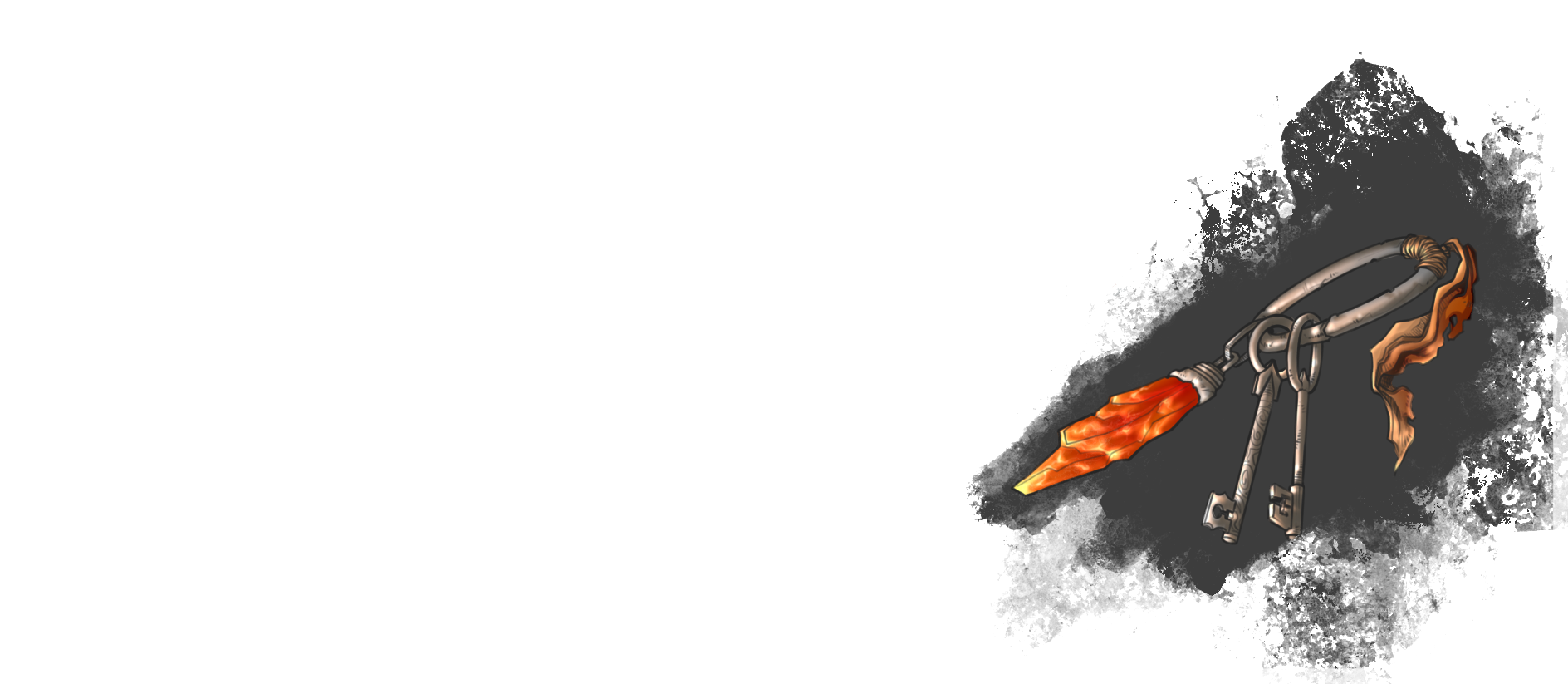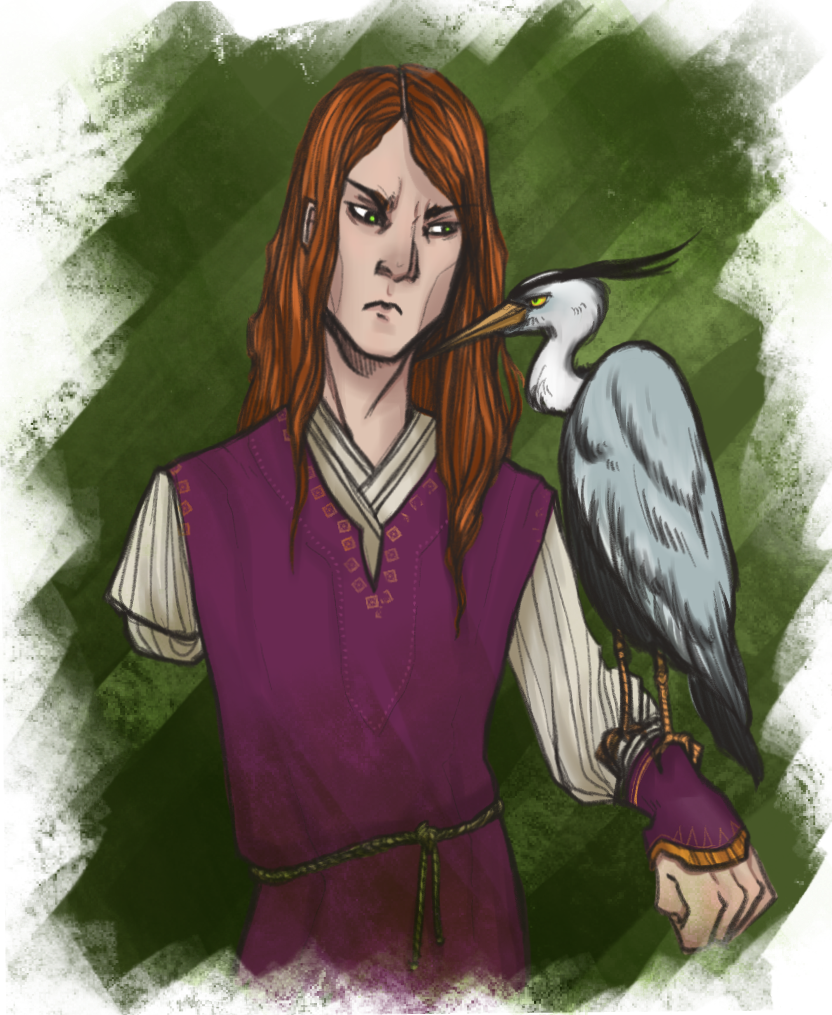Introduction
At the very beginning of the universe, magic was a raw and primal force of the universe, an energy of pure possibility and endless variation and change. The Keeper, who above all things loved order and harmony saw magic as a force to be tamed, but knew it could not be safely locked away into the new dimensions he had created (the Celestial Realm and Damnation). Instead, he drew all magical power in the universe into his own corporeal and ethereal forms and believed it was he, and only he who could provide the universe with the balance and stability it needed. Many of his most loyal Graces began to suspect that this massive accumulation of magical power had corrupted the Keeper or at the very least added to the vanity and suspicion that were latent in his character.
Periodically, over the many millennia that followed, magical energy seeped from the Keeper and he began to realise that even an entity as powerful as he was not able to fully control this primal universal force. During the various challenges and crises that the Keeper faced during the Celestial and Hidden Ages (read more about these in our section on
The Story of the Keeper , magic re-entered the universe in events known as 'Ruptures'. During these times, mortal creatures across the dimensions were either permanently mutated by contact with magic or touched with an energy that is described in the Cantica Arcana, one of the books of the Aruhviad that the Aruhvian Church have disavowed for over a thousand years, as Fate. Some creatures such as Jaraki and Ryvvik are thought to be the product of these Ruptures.
Following the Sundering an event many times in magnitude greater than any Rupture, magic flowed back into the Mortal Realm. The Sundering period was a prolongued period of fear and trauma lasting several decades and many Aestians now try to consign this period to the past. During the Sundering period, there were many reports of 'white fire' raining from the skies, vaporising entire communities as the flow of magical energy from the Keeper ruptured the Celestial Realm and poured directly into the mortal one. Initially, there was just destruction and chaos as magic entered the Mortal Realm, binding itself to the land, sea and sky, and in doing so creating the weave. The Carathene Order has speculated that the weave that was born of the Sundering might simply be one of many that exist across the dimensions, all operating in distinct and different ways. The weave is in its infancy, and where it binded itself to living mortals, it created within them the power of Fate, which enables them to manipulate magic, cast spells, enchant items and discover Spell Forges.
Spellforging
Three decades ago Mortus Maar, scholar in the House of Dorus in
Harenis, discovered the diaries of Journeyman Benedine Lavar, an old leatherbound volume of maps and notes on the Arching Mountains. It is clear from the book that Lavar was one of the earliest known Tomebearers (a term attributed to Maar) and Lavar wrote the first recorded account of discovering a Spellforge.
"I had been drawn to the Old Bull Mountain since I was a child. On clear evenings I would stare at the distant ridges of the mountains from my bedchamber in the sultry heat of the Harenian night and feel a yearning to walk the high mountain passes and cross through secret valleys. It was not until my first travels along the Taeorfal that I recognised there was something in the mountains calling to me, some distant but distinct voice."
The diaries explain how Lavar, after many months of searching, came to a place he calls 'The Ezrus', where in the midst of a blizzard and half starved, he discovered the voice that had called to him.
"Sitting atop an ancient burial mound, staring intently at me was a large black raven. Without hesitation, as it cawed I knelt before it, knowing that this creature was somehow connected to all my journeys across the mountains. It flew low across the clearing I stood in and then vanished in mid air, as if passing through some kind of invisible conduit from one place to the next. With mounting apprehension but unquenchable curiosity, I followed the path of the raven to the place it vanished. As I drew closer I felt a surge of a strange force through the air, electrifying my hair, my skin, my very bones, reaching to that longing buried deep inside of me for so long. It felt as if hands of an inestimable power reached out for something they had lost long ago, a part of my being they sought to reclaim."
Lavar spent most of his life keeping the secrets of Ezrus to himself. He wrote in later diaries that he had encountered those who he described as 'cloaked travellers' on his journeys across Aestis. By this he referred to people like himself who harboured the immense secret of magical knowledge and who would sometimes be forced to reveal the truth about themselves and their powers. Lavar would refer to the experience within the Spellforge in enigmatic terms, saying the the Raven was not what it appeared and that it had revealed itself to him as the 'Mistress of Ezrus' and had instructed him in how to harness a power that had existed within him since birth. Lavar said that the magics that he created for himself over the subsequent decades always involved re-visiting the Mistress, even though she was found in other places, far away from Ezrus. The first spell Lavar created enabled him to see and hear things far, far away and eventually to journey through the minds of others. He wrote that the experience of discovering the Fate within him was often isolating and lonely, and that he was forced to keep his powers a secret from the rest of human society. There are references in his writing to a fear that seemed to follow him and other cloaked travellers that he met, a powerful sense of being observed from a great distance. In his final diary he wrote of a fellow wanderer called Hoedre, who he formed a freindship with and who also felt the power of Fate deep within.
Hoedre and I had chosen a meadow some miles from the edges of the Skaarvald to rest for the night. We made a camp fire and as we rested we spoke about those things that had always engaged us as friends, the poetry of the Hothians and our wanderings in the Arching Mountains. As dusk fell, Hoedre seemed momentarily nervous and tense, he leaned over to me and whispered:
"It's him again, can you feel it?"
I shook my head, but I knew instinctively what Hoedre meant. A restless hunger from far away to the north, searching every Fate touched soul I had ever met had at one time described the same sensation, a presence so far away and yet so close that those who experienced it would sometimes glance over their shoulders to make sure nobody was stood behind them. Trying to appear brave and defiant, Hoedre laughed and tapped his head:
"You won't find any secrets up here old fella, only stories and too much root spirit."
His bravado was unconvincing though, as Hoedre crawled under his blanket to sleep, I saw the drawn face of a deeply troubled man, one who would find no peace in the dreams that would fill his slumber. Later, as I experienced the presence more and more regularly, I began to understand his suffering.
The Fear of Magic
Magic is treated with immense suspicion and fear across Aestis by commonfolk who have no knowledge of the arcane or the esoteric. The combination of centuries of
Aruhvianism, which maintains a central belief in the corrupt nature of magic power, and the horrors of the Sundering has left deep scars in the thinking of most Aestians. The return of magical energies to the world has been viewed by most ordinary folk as a curse, largely because they have experienced the monstrous creatures that magic has introduced to the world. When non humans like Jaraki or Atrushki arrive in human settlements, they are often greeted with suspicion, hostility or fear (depending on how accustomed ordinary Aestians are to them), and this is related to an overall fear of anything that doesn't exist as part of their everyday experience. The fear of spellcasters is far more acute however, and in some towns and villages, the knowledge that someone has magical abilities can often induce panic or the desire to shun or persecute. One experience is common amongst many of the wandering spellcasters of Aestis and that is the experience of being shunned or exilted from their homes and families when their Fate powers manifested themselves. Despite some spellcasters having extraordinary powers, it is generally accepted amongst more seasoned adventurers that using magic sparingly is wise; not only to prevent alarm amongst ordinary folk but also to keep safe from beings that are collectively known as 'Fate Hungry.'
The Fate Hungry
Those touched with Fate have to learn very quickly that they are not the all powerful beings that some would like to imagine they are. Indeed, some of those whose Fate powers materialise simply learn that they become visible to entities in this world and beyond that were previously unaware of their existence. Rather like the koi carp in the lakes of the Del'Marahi who are visible to passing cranes, a Fate touched mortal can present a being from Damnation, the Red Waste, the Phantasm, or from a lower Strata in the Mortal Realm to become intensely interested and hungry for the powers that mortal has.
Inexperienced spell casters are often educated in safe ways of using their powers by more practiced peers, and those that cannot or will not listen have been known to meet with terrible fates. In recent years there have been rumours of a pack of dark eyed, palid hunters with wickedly sharp swords that some have called the 'Shiver Folk' or 'Shiverers' based on the coldness that they exude. Others have called them the 'Morvins', though it is speculated that they might be known as Anomorvians. The name strikes dread into many Fate born, who know that these beings will hunt them relentlessly if they become aware of their existence.
Spell casters and non humans
Human spell casters who feel ill at ease among their non magical kin often find the company of non humans who were born with magic in their blood easier. The Half Fey, who often have to hide their true selves in human society and the Chorale, who normally avoid human interaction altogether are not considered oddities or threats by humans who have long been accustomed to magic and the arcane. Similarly, humans in the Outer Kingdoms, who are often more likely to encounter monstrous creatures that have made Aestis their home are less suprised by encounters with Zsulgs, Skabbakhs or Nurakai.
Do you want more lore? Get weekly updates on World Anvil and the Arclands Blog straight to your email inbox, PLUS our list of fifty mysterious trinkets to delight and enchant your adventuring party. Get your copy here.




Comments